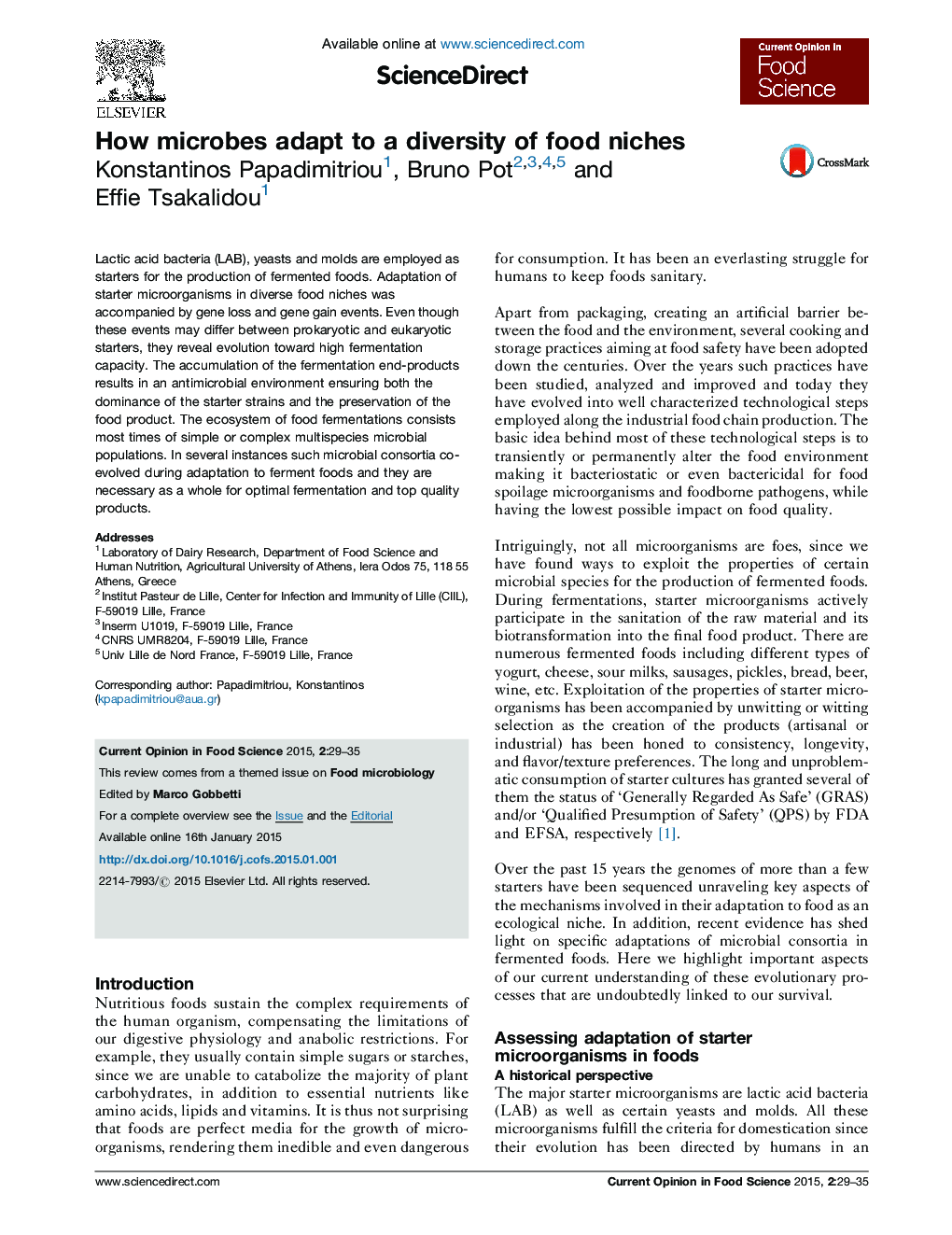| Article ID | Journal | Published Year | Pages | File Type |
|---|---|---|---|---|
| 2079770 | Current Opinion in Food Science | 2015 | 7 Pages |
•Starter microorganisms used in food fermentations have been domesticated by humans.•Adaptation of starters to food niches was accompanied by several gene loss and gene gain events.•The metabolism of starter microorganisms was streamlined toward a high fermentation capacity.•In most cases starters are part of complex multispecies microbial communities.•Understanding the social life of starter microorganisms will have significant technological impact.
Lactic acid bacteria (LAB), yeasts and molds are employed as starters for the production of fermented foods. Adaptation of starter microorganisms in diverse food niches was accompanied by gene loss and gene gain events. Even though these events may differ between prokaryotic and eukaryotic starters, they reveal evolution toward high fermentation capacity. The accumulation of the fermentation end-products results in an antimicrobial environment ensuring both the dominance of the starter strains and the preservation of the food product. The ecosystem of food fermentations consists most times of simple or complex multispecies microbial populations. In several instances such microbial consortia co-evolved during adaptation to ferment foods and they are necessary as a whole for optimal fermentation and top quality products.
